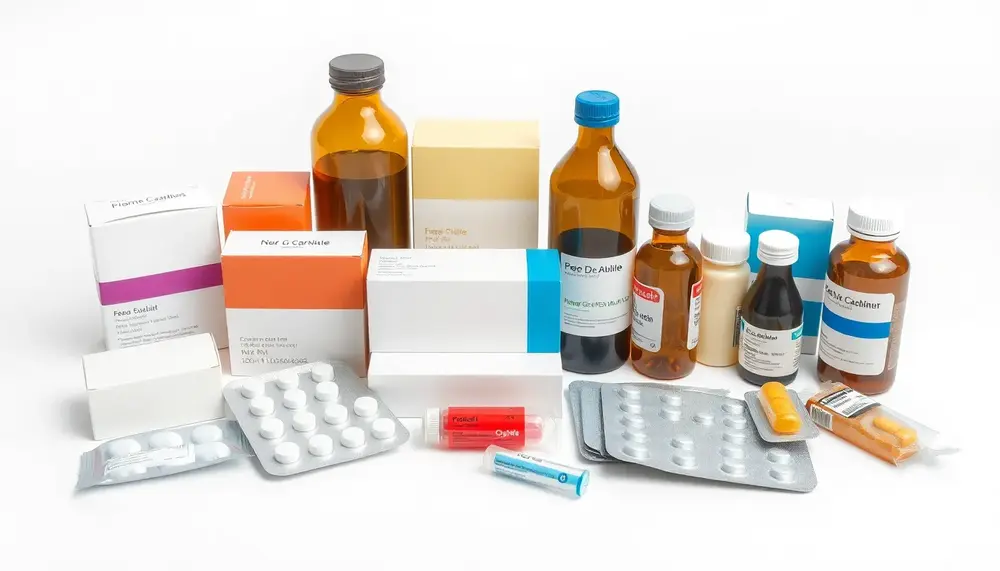Table of Contents:
Introduction to Pharmaceutical Packaging Knowledge Testing
Alright, let's dive right in! When it comes to pharmaceutical packaging, there's a whole world of details to wrap your head around. Testing your knowledge with multiple choice questions (MCQs) can be a real game-changer. Why, you ask? Well, it's all about making sure you've got the essentials down pat. MCQs offer a quick and effective way to gauge your understanding of key concepts without the fuss of long-winded explanations. They can help pinpoint areas where you might need a bit more study or, on the flip side, show you where you're already a whiz. So, buckle up, because this is your chance to see just how much you know about those little details that make a big difference in pharmaceutical packaging!
Importance of Multiple Choice Questions in Pharmaceutical Packaging
Multiple choice questions, or MCQs, play a crucial role in the realm of pharmaceutical packaging. They serve as a valuable tool for both learners and professionals, offering a structured way to assess and reinforce knowledge. Why are they so important, you might wonder? Well, let's break it down.
Firstly, MCQs are efficient. They allow for quick assessment of a wide range of topics, from the types of materials used in packaging to the specific properties of glass containers. This efficiency means you can cover a lot of ground in a short amount of time.
Secondly, they provide clarity. With clearly defined options, MCQs help eliminate ambiguity, ensuring that you understand the nuances of pharmaceutical packaging. They challenge you to think critically and choose the best answer from several possibilities.
Moreover, MCQs are versatile. They can be tailored to different levels of difficulty, catering to beginners who are just starting out, as well as seasoned professionals looking to brush up on their knowledge. This adaptability makes them a go-to choice for educators and trainers in the pharmaceutical industry.
In a nutshell, MCQs are not just questions; they're a gateway to deeper understanding and mastery of pharmaceutical packaging. So, next time you encounter one, embrace it as an opportunity to sharpen your skills and expand your knowledge.
Pros and Cons of Using MCQs for Pharmaceutical Packaging Knowledge Testing
| Pros | Cons |
|---|---|
| Efficient assessment of knowledge | May not accommodate all learning styles |
| Immediate feedback for learners | Potential for guesswork |
| Clear and structured questions | May oversimplify complex topics |
| Encourages critical thinking and application | Limited depth of understanding |
| Adaptable to different levels of difficulty | Creation of high-quality questions can be time-consuming |
Key Topics Covered in Packaging MCQs
So, what exactly do these MCQs cover when it comes to pharmaceutical packaging? Well, there's a whole array of topics that these questions dive into, ensuring a comprehensive understanding of the field. Here's a quick rundown of the key areas:
- Types of Packaging Materials: Questions often explore the different materials used, such as glass, plastic, and metals, each with its own set of properties and uses.
- Properties of Glass: MCQs might delve into the specifics of glass types, like Type I, II, and III, focusing on their chemical resistance and suitability for various pharmaceutical products.
- Color and Light Protection: Expect questions about how different colors of glass, like amber or red, provide protection against light, which is crucial for maintaining drug efficacy.
- Manufacturing Processes: Some questions might cover the steps involved in the production of packaging materials, shedding light on the technical aspects of the industry.
- Chemical Composition: The role of various cations and other elements in glass and their impact on packaging performance can also be a focal point.
- Regulatory Standards: Understanding the regulations and standards that govern pharmaceutical packaging is another critical area often tested.
These topics are just the tip of the iceberg, really. MCQs in pharmaceutical packaging are designed to ensure that you're not just skimming the surface but truly grasping the essential elements that keep this industry ticking. So, gear up and get ready to tackle these questions head-on!
Sample MCQs for Pharmaceutical Packaging
Alright, let's get down to brass tacks with some sample multiple choice questions (MCQs) that you might encounter in the world of pharmaceutical packaging. These questions are designed to test your knowledge and help you think critically about the various aspects of packaging. Ready? Here we go!
-
Which type of glass is known for its high chemical resistance and is often used for injectable drugs?
- A) Type I (Neutral Glass)
- B) Type II (Surface-treated Soda Glass)
- C) Type III (Soda or Alkali Glass)
- D) Type IV (Borosilicate Glass)
-
What is the primary advantage of using amber glass in pharmaceutical packaging?
- A) Cost-effectiveness
- B) Lightweight
- C) Protection against light
- D) Flexibility
-
Which component is not typically found in the composition of pharmaceutical glass?
- A) Silicon
- B) Aluminum
- C) Iron
- D) Lead
-
In the context of pharmaceutical packaging, what does the term "cullet" refer to?
- A) A type of plastic
- B) Recycled glass
- C) A metal alloy
- D) A chemical additive
These questions are just a taste of what you might face. They're crafted to challenge your understanding and help you identify areas where you might need a bit more study. So, take a stab at them and see how you fare!
Benefits of Testing Your Knowledge with MCQs
Testing your knowledge with multiple choice questions (MCQs) offers a slew of benefits that go beyond just getting the right answer. Let's take a closer look at why these little quizzes pack such a punch in the learning process:
- Immediate Feedback: One of the biggest perks of MCQs is the instant feedback you get. This allows you to quickly identify what you know and what you need to revisit, helping you focus your study efforts more effectively.
- Enhanced Retention: Engaging with MCQs can boost your memory retention. The process of recalling information to answer questions reinforces learning and helps cement knowledge in your brain.
- Critical Thinking: MCQs often require you to apply concepts rather than just recall facts. This encourages critical thinking and problem-solving skills, which are invaluable in any field, especially in pharmaceutical packaging.
- Confidence Building: Successfully answering MCQs can build your confidence. As you see your scores improve, you gain assurance in your understanding and ability to tackle complex topics.
- Time Management: Practicing with MCQs can help you develop better time management skills. You learn to read questions carefully and make decisions quickly, which is a handy skill during exams or in high-pressure situations.
In a nutshell, MCQs are more than just a test of knowledge; they're a dynamic tool for learning and personal growth. So, next time you sit down to tackle a set of MCQs, remember that you're not just testing what you know—you're enhancing how you learn.
Conclusion: Enhancing Your Understanding of Pharmaceutical Packaging
In wrapping things up, it's clear that understanding pharmaceutical packaging is no small feat. But, with the help of multiple choice questions, you're well on your way to mastering this intricate subject. These questions aren't just about ticking boxes; they're about building a solid foundation of knowledge that you can rely on in your professional journey.
As you continue to explore the world of pharmaceutical packaging, remember that each question you tackle is a stepping stone. Whether you're learning about the properties of different materials or the specifics of regulatory standards, every bit of knowledge counts. And who knows? The insights you gain might just lead to innovations in packaging that could make a real difference in the industry.
So, keep testing, keep learning, and keep pushing the boundaries of what you know. After all, in the ever-evolving field of pharmaceuticals, staying informed is key to staying ahead. Here's to your journey of discovery and the new heights you'll reach with each question you conquer!
Essential FAQs about Pharmaceutical Packaging
Which type of glass is known for its high chemical resistance and is often used for injectable drugs?
Type I (Neutral Glass) is known for its high chemical resistance and is often used in packaging for injectable drugs due to its inert properties.
What is the primary advantage of using amber glass in pharmaceutical packaging?
Amber glass provides protection against light, which is crucial for maintaining the efficacy and stability of light-sensitive pharmaceutical products.
Which component is not typically found in the composition of pharmaceutical glass?
Lead is not typically found in the composition of pharmaceutical glass due to its toxic properties and the need for safe storage of medications.
In the context of pharmaceutical packaging, what does the term "cullet" refer to?
Cullet refers to recycled glass, which is integrated into the glass manufacturing process to reduce waste and decrease energy consumption.
Why are multiple choice questions (MCQs) beneficial for learning about pharmaceutical packaging?
MCQs provide immediate feedback, enhance retention and understanding, encourage critical thinking, and help identify areas needing further study.






